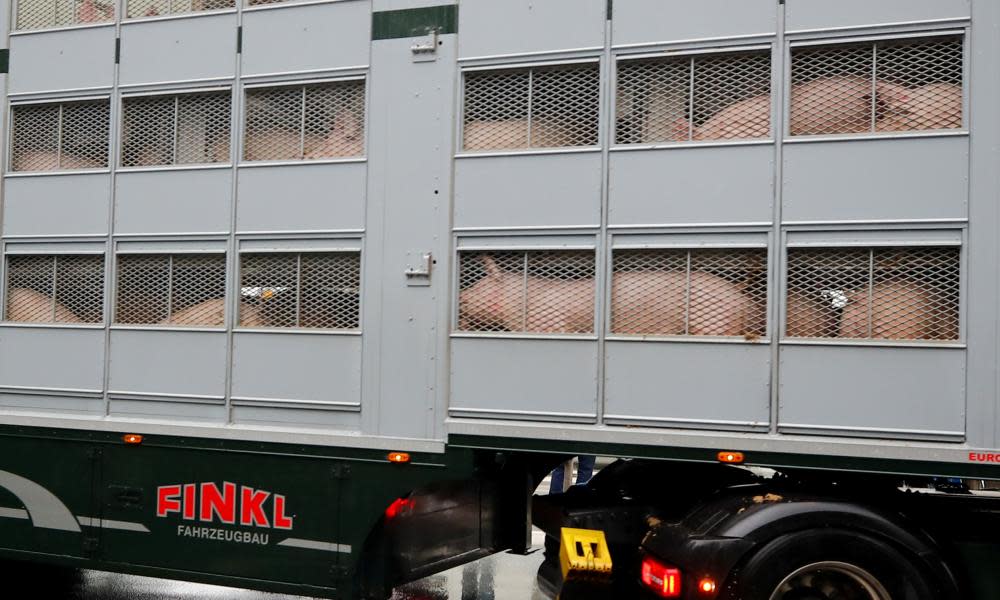German police raid meat-processing firms suspected of smuggling workers

Police have raided the premises of several companies suspected of illegally smuggling eastern European agency workers into the German meat industry.
About 800 officers launched raids on more than 40 private homes and business premises in Berlin, Lower Saxony, Saxony, Saxony-Anhalt and North-Rhine Westphalia in the early hours of Wednesday morning.
The companies targeted, which have not yet been named, are accused of bringing people into Germany from eastern Europe with forged or falsified ID documents. They are understood to be operating “overwhelmingly”, but not exclusively, in Germany’s large meat industry.
Working conditions in the country’s meat-processing industry have been under the spotlight since a coronavirus outbreak in June at the Rheda-Wiedenbrück meat processing plant, in the district of Gütersloh.
Angela Merkel’s cabinet in July approved a draft bill that would ban the use of subcontractors and agency workers in the meat industry altogether. The law, which stipulates that only those employed directly are allowed to slaughter animals at meat-processing plants with 50 or more workers, is expected to be approved by parliament by the end of the year and come into force on 1 January.
An investigation into the Gütersloh outbreak revealed that many eastern European agency workers lived in crammed accommodations organised by the sub-contractors who had brought them into the country, under conditions that made social distancing impossible.
Containing the Gütersloh outbreak was also made harder by the fact that local authorities struggled to track and trace workers who broke quarantine to return to eastern Europe.
Tönnies, the leading German meat processing firm that owns the Gütersloh slaughterhouse, said it had not been subject to police raids on Wednesday. “There have been no raids at our Weißenfels site”, a spokesperson said.


